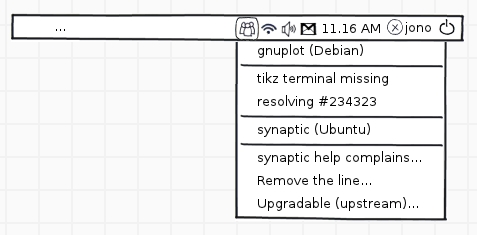One of the primary goals in the Ubuntu community is to encourage and inspire people to get involved in different parts of the project. Getting people involved typically requires a few key steps:
* **Inspire** – Get someone interested in joining the community.
* **Provide Opportunities** – Find something for them to do.
* **Review** – Review their work to help them be successful and have their work included.
For each of these areas we perform different types of work. As an example, to *inspire* people to contribute we perform lots of outreach, run education weeks, and try to showcase great work. For the *opportunities* side of things we run bitesize bugs campaigns and more. We also strive to ensure that contributions are *reviewed* in a timely manner.
We have though found two distinctive challenges in defining *opportunities* and *reviewing work*. First, in terms of opportunities, the bitesize bugs lists, lists of QA tests to complete etc, are often changing and growing and sometimes new contributors don’t see these new additions. Also, in terms of reviews, we have sometimes seen the queues of content that needs to be reviewed (e.g. the Ubuntu Sponsorship Queue and various merge proposals) build up because our reviewers get busy with other work and forget about the reviews.
This is a problem with *visibility of lists*. We want to always ensure that lists of opportunities and reviews are very visible to new contributors for the former and our existing mentors for the latter. Traditionally this has been a challenge as the lists and their visibility has always existed on a website and are not locked into the daily workflow of those respective groups (new contributors and mentors). Fortunately, I think technology could help with this.
## Building Community Into The Desktop
Much of the work we have done in growing our community has happened outside of an installed Ubuntu system. The work happens on websites, in calendars, in social media and elsewhere. I have though always been curious about how we could build community interaction directly into an Ubuntu desktop. I wrote [Lernid](https://wiki.ubuntu.com/Lernid) as an experiment in to this: providing a cohesive application that brought together the different pieces in delivering a solid online learning experience, and the application has proved to be popular.
In thinking about our problem of raising the *visibility of lists*, it struck me that we have this awesome application indicator technology that we ship with every Ubuntu desktop, and this could help significantly. Imagine we had an indicator for different types of participation, and it always provided a set of links that were *tuned to you and your capabilities*. Let’s look at a few examples.
### Bitesize Bugs

You are a new developer and you are interested in contributing to a given project (e.g. Unity). You always want to know which bitesize bugs are going to be great places to start. You install `indicator-bitesize` and you can set which projects you are interested in and it will show the highest priority bitesize bugs for that project. Clicking on each item takes you to the Launchpad bug report with the details.
This indicator would regularly poll Launchpad to update the list when items are tended to and new items appear. The indicator would change color to indicate that there is new content.
### Code Reviews

You are a developer on a project (e.g. Unity), and you want to always provide timely input on merge proposals. The `indicator-codereview` indicator would present code reviews for all the projects you have permissions to review code for in Launchpad. If you click on one of these items it would take you to the merge proposal page for that branch in Launchpad.
This indicator would regularly poll Launchpad to update the list when items are tended to and new items appear. The indicator would change color to indicate that there is new content.
### Tests

You are interested in testing Ubuntu for the current development release. The testing process should be as simple as installing `indicator-testing` which then presents a list of tests that are appropriate to your software and hardware configuration. As an example, if you have an ATI card it would show tests relating to your card and driver. Clicking on each item would load a checkbox type test that would take you through the steps of testing and uploading the results back to the testing team.
This indicator would regularly poll a back-end testing service to update the list with new items when you have completed the tests. The indicator would change color to indicate that there is new content.
### Sponsorship Queue

The Ubuntu Sponsorship Queue is a key piece in how we grow our developer community. The `indicator-ubuntusponsorship` indicator would provide a list of items on the queue potentially that are related to the packages you are interesting in in the queue. Clicking on each item would take you to the item in Launchpad.
This indicator would regularly poll Launchpad to update the list when items are tended to and new items appear. The indicator would change color to indicate that there is new content.
## Next Steps
I think these indicator features could really help raise the visibility for different opportunities and reviews open to our community, and embedding the community experience more deeply into the desktop.
Would anyone be interesting in writing one of these? Some resources:
* [Documentation](https://wiki.ubuntu.com/DesktopExperienceTeam/ApplicationIndicators) – some details and code snippets of how to write an indicator.
* [Get Help](https://unity.ubuntu.com/contact-us/) – `#ayatana` on freenode and the [mailing list](https://launchpad.net/~ayatana-dev) are there to help.
I look forward to seeing if anyone is interesting in picking some of these ideas up. 🙂








